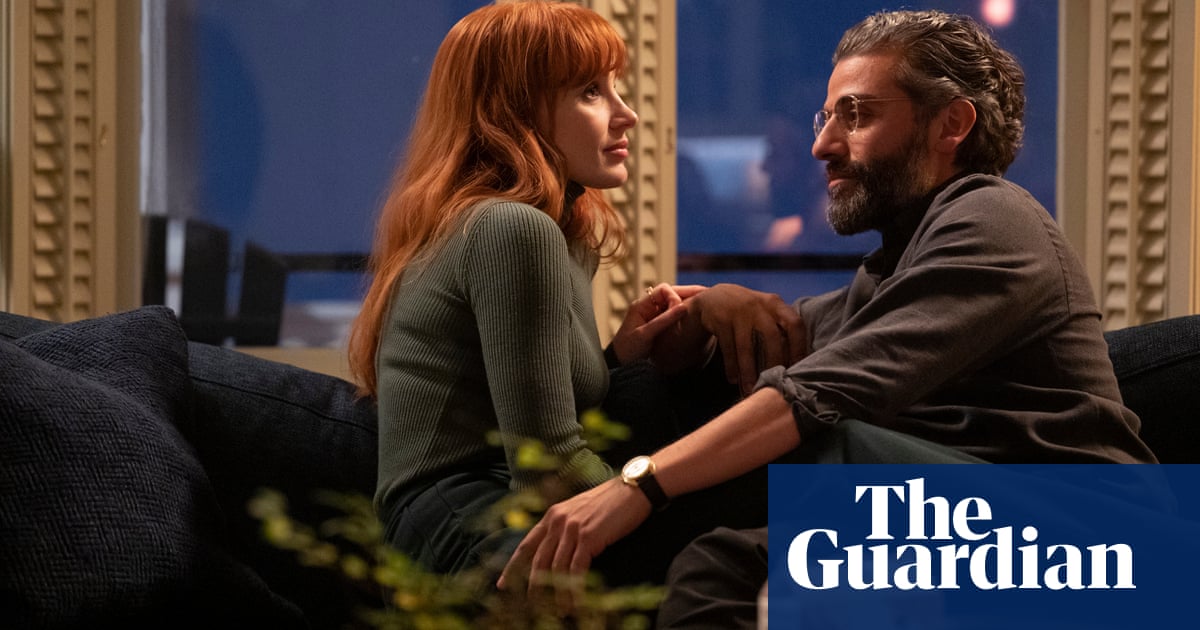
You
It’s rare for a show with so few redeeming features to become a hit, and yet Netflix’s You has done just that, with tens of millions of viewers following the disturbing exploits of Penn Badgley’s holier-than-thou-drifter, and the beautiful female objects of his obsession. Joe Goldberg is a Nice Guy, so nice in fact that he owns a huge glass cage in which he traps anyone who stands in between him and his sociopathic whims. He worms his way into the life of his first victim, Beck, by stalking her on social media. It’s the kind of plot that could, in a more serious production, scare viewers into not diarising their movements on Instagram, but – told from Joe’s perspective – becomes something more akin to a Joker-esque incel manifesto.
The only reason I have persevered with You – along, surely, with so many other viewers – is because of how intensely silly it is. No one in the show has ever heard of a password, or curtains. Every time Joe Clark-Kents himself with a baseball cap, he is suddenly invisible. He becomes friends with not one but two children, who become his confidantes. There are long, narcissistic monologues about narcissism, and a character called Love who works at a Whole Foods-style shop called Anavrin (nirvana, spelled backwards). His glass prison is somehow transported from New York to LA, as though FedEx wouldn’t have some questions.
You might be a trashy, terrible, voyeuristic drama … or it might be one of the finest works of satire ever created. Gladly – either way – it’s unlikely to have you swooning over its leading man. Hannah J Davies
The Undoing
The mistake I made with The Undoing was Googling the book it was based on: You Should Have Known by Jean Hanff Korelitz. Because the book is about a therapist who, after a career spent chastising clients for not seeing the plain truth in front of them, has to come to terms with the fact that her charming husband was definitely a murderer who definitely murdered a woman. Which actually sounds good.
Not The Undoing, though. That was a gormless whodunnit about a therapist, played by Nicole Kidman, who worked one day a month and spent the remaining time darting her eyes around and wearing a terrible coat, trying to work out if her husband was a murderer or not. Now, everyone in this series was an idiot – because the plot would have turned to dust if anyone on-screen was able to demonstrate even the slightest shred of intelligence – but she was by far the stupidest.
She was so stupid, in fact, that she was routinely unable to say her own surname. Every time her character – Grace Fraser – called herself “Grace Frasier”, I slapped my forehead in despair, and now my forehead has got a dent in it. Still, I’m pleased I watched it to the end, if only to see the most pointlessly inexplicable helicopter chase in all of television history. God, I hated The Undoing. Stuart Heritage
Made In Chelsea
In May, Made In Chelsea will be celebrating a decade on our screens. Specifically, my screen. I’ve witnessed practically every single second of the SW3-set structured reality show, a nauseating carnival of financial privilege, chronic infidelity and 12-second brunches. The reasons behind my devotion elude even me most of the time. It’s not the format: the show now seems stale and snail-like compared with its reality competitors. There’s no comforting continuity: the original players are long gone, replaced by a constantly refreshed roster of posh strangers (to us, to each other) and Love Island alumni. There is no sociological value: these days the drama consists largely of cast members regurgitating bitchy gossip in front of the subject of said gossip, an act so excruciatingly awkward it has to be a contractual obligation.
It’s not a schadenfreude-tinged hate-watch: I’m far too privileged to pretend that everything awful about these people isn’t also what is awful about me. But there’s no fellow-feeling either – I’d struggle to maintain a conversation longer than three seconds with any of them. Perhaps the repetition and navel-gazing inanity once had a calming effect, but nowadays the shoddily manufactured plotlines and arbitrary casting rile me up. The best justification I have is that every few episodes somebody says something deliberately, genuinely funny, and the juxtaposition between that joke and the sterile, superficial, staunchly bland world of the show leaves me strangely elated. Because isn’t the foremost thrill of reality TV the act of unearthing realness in an unreal context? Of happening upon normality in an eerily artificial world? Maybe. Or maybe I just really love watching people not eat brunch. Rachel Aroesti
The Newsroom
The Newsroom might not be the worst show of all time, but it’s probably the least self-aware. Originally billed as Aaron Sorkin’s return to familiar terrain after an extended break from television (he has not returned since), the series follows the personal and professional lives of the staff at Atlantis Cable News (ACN), a thinly veiled CNN stand-in.
The first season centres around anchor Will McAvoy (Jeff Daniels) whose journalistic superpower appears to be the ability to talk over absolutely anyone – especially the show’s female characters – which makes rooting against him a joy. Sorkin is a master of building around a rude antihero, but unlike the paranoid geniuses at the centre of The Social Network and Steve Jobs, McAvoy is just paranoid.
Routine meetings become the perfect stage for endless monologuing and every episode ends with an overwrought Brit rock banger (High and Dry, Fix You). And just try and name another show that would get away with the Bin Laden plane scene.
This laundry list of flaws should make it unwatchable, the opposite is true. The Newsroom is a triumph of sentiment over substance. Besides, if it’s good enough for Tarantino … Alex Mistlin
The Masked Singer
The Masked Singer is a black hole of time-wasting. You could quite easily tune in for the last five minutes, watch a quick recap of the costumed karaoke that counts as primetime Saturday night television, see who’s behind the mask, then switch back to your classy, subtitled European drama on BBC Four.
However, every Saturday night, this idiot puts The Masked Singer on at the beginning, which does, at least, help me remember who was behind the mask last week, a fact I almost always forget immediately after the episode is over. I resent each and every performance. The clues to each singer’s identity are ridiculous and get worse after they have been explained: so-and-so referenced the sun because there is a lyric about the sky on the B-side to their 12th single, which came out in 1997? Don’t insult me. The panel make ludicrously A-list guesses, as if Hollywood’s finest would be thrilled to dress up like a cartoon animal and sing an 80s pop hit for the amusement of Rita Ora.
And yet, as each episode draws to an end, I find myself chanting, “Take it off! Take it off! Take it off!”, delighted that Sue Perkins has pretended to be an adorable farting dragon for a month. Rebecca Nicholson.
Prodigal Son
Prodigal Son sounds like it was conceived at five to five on a Friday. This guy works with the NYPD, right? And he’s a genius at profiling murderers, yeah? BUT, that’s because his OWN DAD is a serial killer, caged up in a secure hospital. AND Dad helps him with homicide cases! That’ll do. Mine’s a pint.
On more than one level, Prodigal Son is indeed just a maverick-cop procedural with a Silence of the Lambs DVD playing in the background. Every episode sees the troubled but brilliant Malcolm Bright (Tom Payne) rock louchely up to a crime scene and instantly deduce how and why the murder was done. But that leaves time for Prodigal Son to cut loose. Bellamy Young (Mellie from Scandal) gives it the full Days of Our Lives swish as Malcolm’s bossy millionaire mum, while his evil dad (yes he’s in prison, but he features a lot because, er, he’s allowed to ring people up) is played with spicy relish by Michael Sheen, flipping majestically between terrifying and camp.
When season one did a multi-episode arc about a murderer with a cool nickname – the Junkyard Killer – I realised why Prodigal Son was filling a hole: it’s a sillier, glossier Dexter. It’s trash, but everyone in it is visibly fine with that, and so am I. Jack Seale












